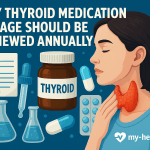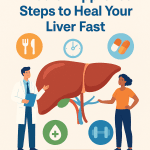This article is for informational purposes only and is not a substitute for professional medical advice. Always consult your healthcare provider for personalized advice.
Understanding Menopause
Menopause is a natural biological process marking the end of a woman’s reproductive years, typically occurring between ages 45 and 55. It is characterized by the cessation of menstrual cycles and a decline in hormone production, particularly estrogen and progesterone. While menopause is a normal part of aging, it can bring a range of symptoms that affect daily life.
Common Symptoms of Menopause
During menopause, women may experience a variety of symptoms, which can vary significantly in intensity and duration. Understanding these symptoms is crucial for managing them effectively.
Hot Flashes and Night Sweats
Hot flashes are one of the most common symptoms, affecting approximately 75% of women during menopause. These sudden feelings of warmth can occur at any time, often accompanied by sweating and flushing. Night sweats, a more intense form of hot flashes, can disrupt sleep and lead to fatigue. The pathophysiology behind hot flashes involves a complex interplay of hormonal changes and alterations in the hypothalamus, which regulates body temperature. As estrogen levels drop, the hypothalamus may misinterpret body temperature, triggering these uncomfortable sensations.
Changes in Menstrual Cycle
As menopause approaches, menstrual cycles often become irregular. Some women may experience heavier periods, while others may have lighter ones. Eventually, periods will stop altogether, marking the official onset of menopause. This transition, known as perimenopause, can last several years and is characterized by fluctuations in hormone levels. Understanding this phase can help women prepare for the changes ahead.
Mood Swings and Cognitive Changes
Hormonal fluctuations can lead to mood swings, irritability, and even anxiety or depression. Additionally, some women report difficulties with concentration and memory, often referred to as “brain fog.” These cognitive changes can be frustrating, but they are a common experience during this transition. The neurochemical changes associated with declining estrogen levels can affect neurotransmitters like serotonin and dopamine, which play critical roles in mood regulation. Recognizing these changes is vital for seeking appropriate support.
Vaginal Dryness and Sexual Changes
Decreased estrogen levels can lead to vaginal dryness, making intercourse uncomfortable for some women. This can also affect libido and overall sexual satisfaction. Open communication with partners and healthcare providers can help address these issues. Vaginal atrophy, a condition characterized by thinning and inflammation of the vaginal walls, can also occur, further complicating sexual health. It’s important to understand that these changes are common and can be managed with appropriate interventions.
Physical Changes
Women may notice weight gain, particularly around the abdomen, as well as changes in skin elasticity and hair texture. These physical changes can impact self-esteem and body image, making it important to adopt healthy lifestyle habits. The hormonal shifts can also affect metabolism, leading to changes in how the body stores fat and utilizes energy. Acknowledging these changes can empower women to take proactive steps in their health journey.
Effective Relief Strategies
While menopause is a natural process, there are various strategies to alleviate symptoms and enhance quality of life.
Hormone Replacement Therapy (HRT)
Hormone Replacement Therapy (HRT) is a common treatment option that involves taking estrogen (and sometimes progesterone) to relieve menopausal symptoms. HRT can be effective in reducing hot flashes, night sweats, and vaginal dryness. However, it is not suitable for everyone, and women should discuss the benefits and risks with their healthcare provider. For instance, women with a history of certain cancers or cardiovascular issues may need to consider alternative treatments. It’s crucial to have personalized discussions about HRT to ensure it aligns with individual health needs.
Lifestyle Modifications
Making healthy lifestyle choices can significantly impact symptom management. Regular exercise, a balanced diet rich in fruits, vegetables, and whole grains, and maintaining a healthy weight can help ease symptoms. Additionally, avoiding triggers such as caffeine, alcohol, and spicy foods may reduce the frequency of hot flashes. Consider incorporating activities like walking, swimming, or yoga into your routine. These not only help manage weight but also improve mood and promote better sleep. Small changes can lead to significant improvements in overall well-being.
Alternative Therapies
Many women find relief through alternative therapies such as acupuncture, yoga, and meditation. These practices can help reduce stress and promote relaxation, which may alleviate some menopausal symptoms. Mindfulness and relaxation techniques have been shown to improve overall well-being and may even reduce the severity of hot flashes. Exploring these options can provide a holistic approach to managing menopause.
Over-the-Counter Remedies
Some women find relief from symptoms using over-the-counter products, such as vaginal moisturizers or lubricants for dryness. Herbal supplements, like black cohosh and evening primrose oil, are also popular, though it’s essential to consult a healthcare provider before starting any new supplement. While some studies suggest these may help, results can vary, and they are not a substitute for medical treatment. Being informed about these options can empower women to make choices that work for them.
Myths vs. Facts about Menopause
There are many misconceptions surrounding menopause. Here are a few common myths and the facts that debunk them:
- Myth: Menopause happens suddenly.
Fact: Menopause is a gradual process, often starting with perimenopause, which can last several years. - Myth: All women experience severe symptoms.
Fact: Symptoms vary widely; some women have mild symptoms, while others may have more severe experiences. - Myth: Menopause means the end of a woman’s sex life.
Fact: While some women may experience changes in libido, many continue to have fulfilling sexual relationships. - Myth: Hormone therapy is dangerous for all women.
Fact: While HRT may not be suitable for everyone, it can be safe and effective for many women when monitored by a healthcare provider.
Frequently Asked Questions
What age does menopause typically start?
Menopause usually begins between ages 45 and 55, with the average age being 51.
How long do menopause symptoms last?
Symptoms can last anywhere from a few months to several years, with some women experiencing symptoms for up to a decade.
Can menopause affect mental health?
Yes, hormonal changes during menopause can contribute to mood swings, anxiety, and depression in some women.
Is it possible to get pregnant during perimenopause?
Yes, as long as you are still having menstrual cycles, there is a possibility of pregnancy during perimenopause.
What lifestyle changes can help with menopause symptoms?
Regular exercise, a healthy diet, stress management techniques, and avoiding triggers like caffeine and alcohol can help alleviate symptoms.
Patient Vignette
Consider Sarah, a 52-year-old woman who began experiencing hot flashes and mood swings during her late 40s. Initially, she felt overwhelmed and unsure how to cope. After consulting with her healthcare provider, Sarah learned about HRT and lifestyle changes that could help. By incorporating regular exercise, such as brisk walking, and mindfulness practices like meditation into her routine, she found significant relief from her symptoms and improved her overall well-being. Sarah also joined a support group, which helped her connect with other women going through similar experiences, further enhancing her emotional resilience. This journey highlights the importance of seeking support and exploring various options for relief.
Conclusion
Menopause is a significant life transition that can bring various challenges. However, with the right information and support, women can navigate this phase with confidence. Whether through hormone therapy, lifestyle changes, or alternative therapies, many options are available to help manage symptoms effectively. Remember, you are not alone in this journey, and reaching out for help is a vital step toward thriving during menopause.
Key Takeaways
- Menopause typically occurs between ages 45 and 55, marking the end of menstrual cycles.
- Common symptoms include hot flashes, mood swings, and vaginal dryness.
- Hormone Replacement Therapy (HRT) can effectively relieve symptoms but should be discussed with a healthcare provider.
- Lifestyle changes, such as diet and exercise, play a crucial role in managing menopause symptoms.
- Alternative therapies like acupuncture and yoga can provide additional relief.
- Open communication with healthcare providers and loved ones is vital during this transition.
References
- PubMed: Menopause and Quality of Life
- NHS: Menopause Symptoms and Treatments
- CDC: Menopause Overview
- WHO: Menopause and Women's Health
- UpToDate: Management of Menopause Symptoms
- Mayo Clinic: Menopause: Symptoms and Causes
- Harvard Health: Menopause and Hormone Therapy
- American College of Obstetricians and Gynecologists: Menopause FAQs








Post a comment